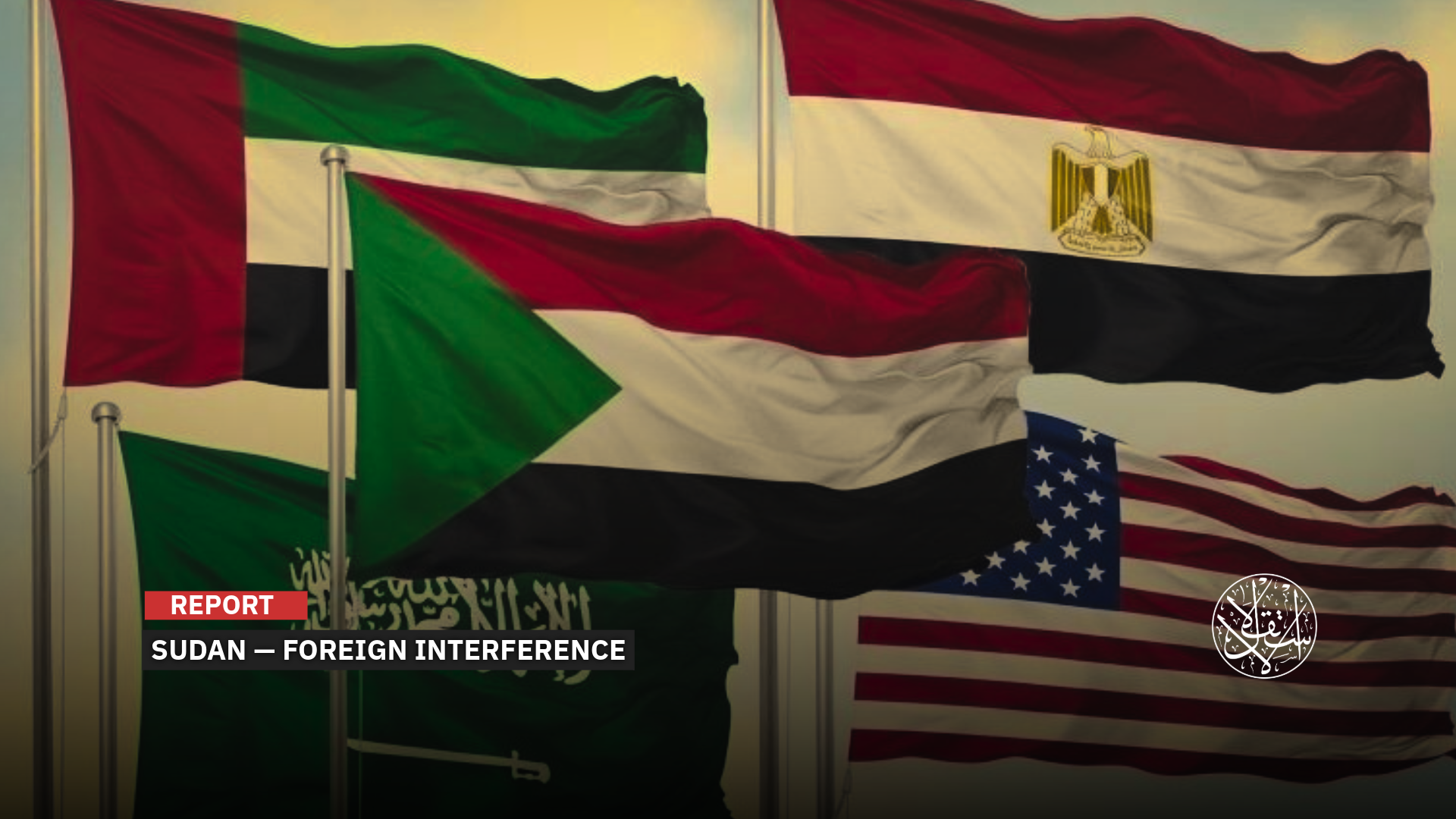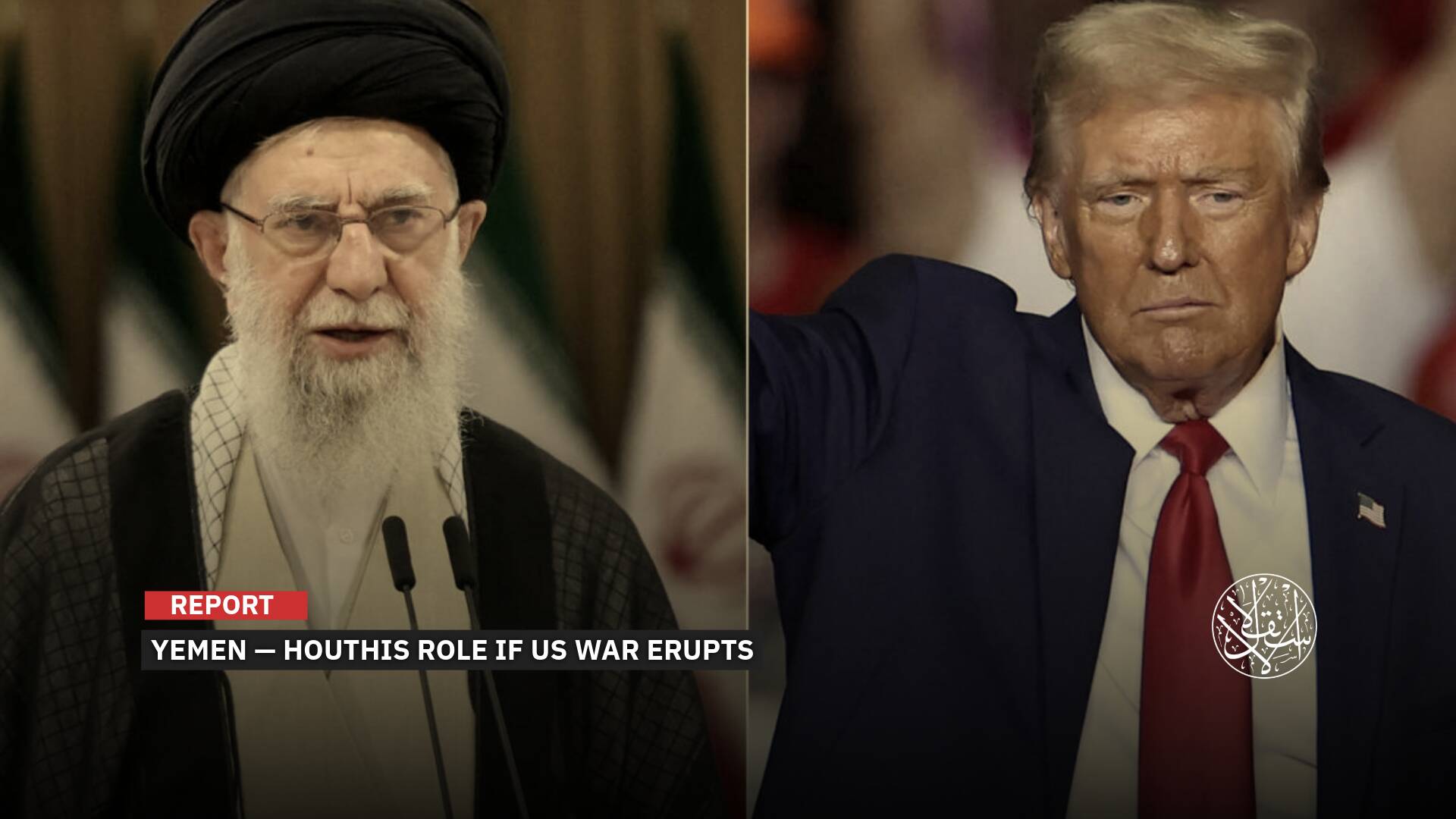After Slapping Egypt and the UAE, How Will Sudan’s Islamists Respond to al-Burhan’s Betrayal?

“After the great sacrifices made, it has become impossible to heed futile attempts to strip the people of their will.”
In a joint statement on Sudan’s war issued September 12, 2025, the so-called Quad—Egypt, the United Arab Emirates, Saudi Arabia, and the United States—drew attention by inserting language that explicitly ruled Islamists out of the country’s political future.
The statement’s fourth clause affirmed that Sudan’s future “will be decided by the Sudanese people through an inclusive and transparent transition process not dominated by any of the warring parties.” But it went further, declaring that “Sudan’s future cannot be dictated by violent extremist groups linked to or aligned with the Muslim Brotherhood, whose destabilizing influence has fueled violence and instability across the region.”
The Quad’s direct reference to the Brotherhood and its demand for exclusion struck many Sudanese as blatant interference in determining the country’s political landscape. Critics argued the language reflected the preferences of the statement’s sponsors—particularly Egypt and the UAE—which have long opposed giving Islamists a foothold in power for fear their support for the army could translate into a future role in government.
The United States has also imposed sanctions on Sudanese Islamists, saying the goal is to curb their influence. Meanwhile, Arab and Western capitals have begun pressing Sudan’s military leader, Gen. Abdel Fattah al-Burhan, to cut ties with Islamist factions. Signs of this shift appeared when al-Burhan turned against his Islamist allies in the armed forces.

Statement to Divide Sudan
A joint declaration from Egypt, Saudi Arabia, the United Arab Emirates, and the United States on Sudan’s war was billed as an effort to end the conflict and preserve the country’s unity. But to many Sudanese, it read instead as divisive, sidelining Islamists and tacitly bolstering the Rapid Support Forces (RSF) rebellion.
The Quad emphasized Sudan’s “sovereignty, unity, and territorial integrity” as the basis for peace and stability, stressed that “no military solution” could resolve the “conflict,” and urged a three-month truce at a moment when RSF forces appeared to be faltering and the army was seen as nearing victory.
The statement called for “an inclusive and transparent transition not dominated by any of the warring parties” and the creation of an independent civilian government. But it then inserted language excluding Islamists from Sudan’s future, branding them “violent extremist groups linked to the Muslim Brotherhood” and blaming them for regional instability, wording Sudanese analysts said bore the imprint of the UAE.
The declaration also urged a “negotiated settlement involving both the Sudanese Armed Forces and the Rapid Support Forces,” effectively equating the army with the rebellion.
Sudan’s Foreign Ministry dismissed the statement as unbalanced, insisting the government would not accept “any international or regional interventions that fail to respect Sudanese sovereignty and its legitimate institutions backed by the people.” It also rejected “any attempt to equate the state with a racist terrorist militia that relies on foreign mercenaries to erase Sudan’s identity.”
A Sudanese diplomat voiced sharp objections to the UAE’s role in the Quad’s deliberations, saying Khartoum had presented “clear evidence” that Abu Dhabi has been financing and arming the Rapid Support Forces since the start of the war.
“If Washington is serious about ending the war in Sudan, it must address the flow of U.S. weapons to the RSF through its allies in Abu Dhabi,” the diplomat told Sudanese newspapers. “Unless this aggressive conduct is condemned by the United States in particular, the statement has no credibility as a sign of real commitment to stopping the war.”
He added that the Quad’s ministerial statement “will not be binding on Sudan’s government unless Khartoum is a party to it without foreign tutelage,” stressing there would be “no negotiations with the RSF or its backers at home or abroad” and that Sudan would defend its land and people against any external aggression.
On September 5, 2025, Sudan submitted a new package of evidence to the United Nations, revealing the extent of direct foreign intervention through UAE-backed mercenaries and documenting systematic crimes against civilians and the armed forces.
The documents showed that the UAE had deployed more than 350 Colombian mercenaries to carry out organized attacks in Darfur, used banned munitions such as white phosphorus, coordinated through private military companies, collaborated with Libyan rebel Khalifa Haftar, and transported weapons via Chad.
Ali Ahmed Krti, secretary-general of Sudan’s Islamic Movement, dismissed the Quad’s statement, saying, “Every time the militia falters on the battlefield, its makers and backers rush to feign concern for peace and call for humanitarian corridors, invoking the need for a truce.”
In a statement titled On the Quad’s Encroachments Against Sudan, he argued that “after the great sacrifices made by the army and the people, it has become impossible to heed futile attempts to strip the people of their will or diminish the glory of its army’s victories.”
Krti said Islamist youth had dedicated themselves to defending Sudan’s dignity, sovereignty, and independence, vowing that the movement would remain a pillar of support for the country’s security and unity. He pledged to thwart what he described as “schemes of dependency, domination, and defeat.”
Ahmed Haroun, acting president of Sudan’s former ruling National Congress Party, said, “The same actors who ignited the war cannot be trusted to put out its flames,” questioning the intentions of international mediators leading peace efforts.
In a statement, Haroun argued that Sudan’s people are not “wards of foreign powers” and that equating the national army with the Rapid Support Forces or reviving the left-leaning Forces of Freedom and Change coalition under another name was an insult to Sudanese sacrifices.
The UAE Plays Both Sides
Sudanese analysts likewise said the Quad’s declaration sought to divide rather than unify the country. Instead of backing the army’s claim to national sovereignty, the statement equated it with RSF commander Mohamed Hamdan Dagalo’s rebellion.
Sudanese journalist and analyst Hassan Ismail said the Quad’s statement “reflects the agenda of its drafters,” adding that the UAE’s interests align with U.S. efforts to undermine Sudan’s stability for multiple reasons.
Ismail told Al-Estiklal that the Quad’s statement resembled a blueprint for dismantling Sudan, aimed at fragmenting the country and advancing the interests of Hemedti (Mohamed Hamdan Dagalo). He added that the document appeared piecemeal, with each party inserting paragraphs reflecting its own agenda, giving it a disjointed tone and highlighting the sections he attributed to Abu Dhabi.
This also explains the inclusion of sections specifically targeting Islamists and the Muslim Brotherhood, which Sudanese observers attribute to the UAE.
Ismail said, “The UAE played both sides in this statement,” noting that it avoided labeling what happened in Sudan as a UAE-backed rebellion, instead using the neutral term “conflict in Sudan” to impose a particular political narrative.
According to him, the aim was to distribute the outcomes of the war through a settlement that legitimizes Hemedti’s rebel movement, elevating his status to that of the Sudanese army while simultaneously undermining the army’s standing and reducing it to the level of militia mercenaries.
Political analyst Makkawi Elmalik went further, saying the U.S.-Gulf-Egypt initiative was “no peace plan but an attempt to resuscitate the Dagalo militia after its defeats.” In a post on Facebook, he argued the Quad’s call for a truce was designed to rescue the RSF, while sanctions would selectively weaken the army and its allies.
“The war in Sudan was never a purely domestic conflict,” he said, but the front line of “a foreign project to dismantle the state and hand sovereignty to proxy militias run from intelligence rooms in Abu Dhabi and Washington.”
Elmalik questioned the timing of the Quad’s statement after what he described as decisive defeats for the RSF and its Emirati sponsors in Darfur and Kordofan. He said Washington was now scrambling to limit Abu Dhabi’s losses by “buying time diplomatically, pushing cease-fires and humanitarian initiatives to help Hemedti’s forces reposition.”
He added that the plan included recycling Sudan’s revolutionary forces as a political façade under U.S.-Emirati supervision.
U.S. and Excluding Islamists
The Quad’s proposal for a three-month humanitarian truce in Sudan coincided with a new round of U.S. Treasury sanctions targeting Islamist figures and groups, underscoring a coordinated push to block them from shaping the country’s future.
Within hours of the Quad foreign ministers declaring that Sudan’s transition should exclude “violent extremist groups tied to the Muslim Brotherhood,” Washington blacklisted Sudanese Islamists in measures that appeared designed to reinforce the same message.
On September 12, 2025, the U.S. Department of Treasury imposed sanctions on Finance Minister Gebreil Ibrahim, who also leads the Justice and Equality Movement, a Darfur-based faction with historic Islamist roots. It also sanctioned the al-Bara’ ibn Malik Battalion, a militia Washington described as a successor to the Islamist Popular Defense Forces once aligned with ousted president Omar al-Bashir. Egypt and Saudi Arabia had twice detained the brigade’s commander, al-Misbah Abu Zaid Talha, before releasing him in 2024 and 2025.
According to the Treasury, the brigade fielded more than 20,000 fighters against the RSF, drawing on weapons and training from Iran’s Revolutionary Guard. U.S. officials said the sanctions “seek to limit Islamist influence in Sudan and curtail Iran’s regional activities that have contributed to regional destabilization, conflict, and civilian suffering.”
According to the statement, this appears to target the Sudanese minister in retaliation for his November 2024 trip to Tehran and meeting with his Iranian counterpart.
Sudan’s army-aligned government criticized the U.S. Treasury sanctions on the al-Bara’ ibn Malik Battalion.
In a statement issued September 14, 2025, Khartoum described the measures as “unilateral” and said they would not contribute to peace in Sudan. The statement urged Washington not to rely on “assumptions promoted by certain opposition groups pursuing political agendas that do not serve the country’s highest interests.”
It emphasized that “achieving peace in Sudan is primarily a Sudanese matter, based on the aspirations of all components of society,” implicitly signaling opposition to excluding Islamists from the process.
Emirati-backed media welcomed the Quad’s statement urging the exclusion of Islamists, particularly the Muslim Brotherhood, from Sudan’s future. On September 16, 2025, the London-based al-Arab claimed that U.S. sanctions on Sudanese Islamists could pave the way for Washington to designate the Brotherhood as a terrorist organization.
The paper cited analyst Tayeb al-Zain, who argued that the Sudanese army’s rejection of the Quad’s call “clearly reflects that the military remains under the influence of remnants of the previous regime, led by the Muslim Brotherhood.”
Al-Arab also claimed that the U.S. State Department pledged to use all available tools to prevent the Brotherhood from returning to power and alleged that the group played a central role in undermining the previous civilian transitional government, blocking the framework agreement, and contributing to the outbreak of war between the Sudanese Army and the Rapid Support Forces in April 2023.
Former leftist Prime Minister and head of the Samoud coalition, Abdallah Hamdok, endorsed the Quad’s statement, saying it “aligned with our vision for ending the war through a political solution, preserving Sudan’s unity, and keeping the Muslim Brotherhood out of power.” Hamdok called on the Quad to officially designate the Sudanese Islamist Movement and the National Congress Party as terrorist organizations.
Sources
- Joint Statement on Restoring Peace and Security in Sudan
- After the Quad’s Statement, What Can Be Expected from Sudan’s Islamists? [Arabic]
- Could Designating Sudan’s Muslim Brotherhood as a Terrorist Group Be the U.S.’s Next Move? [Arabic]
- Sanctioning Sudanese Armed Group Leader and Islamist Militia
- Sanctioning Sudanese Armed Group Leader and Islamist Militia with Links to Iran







